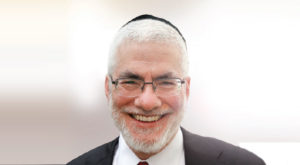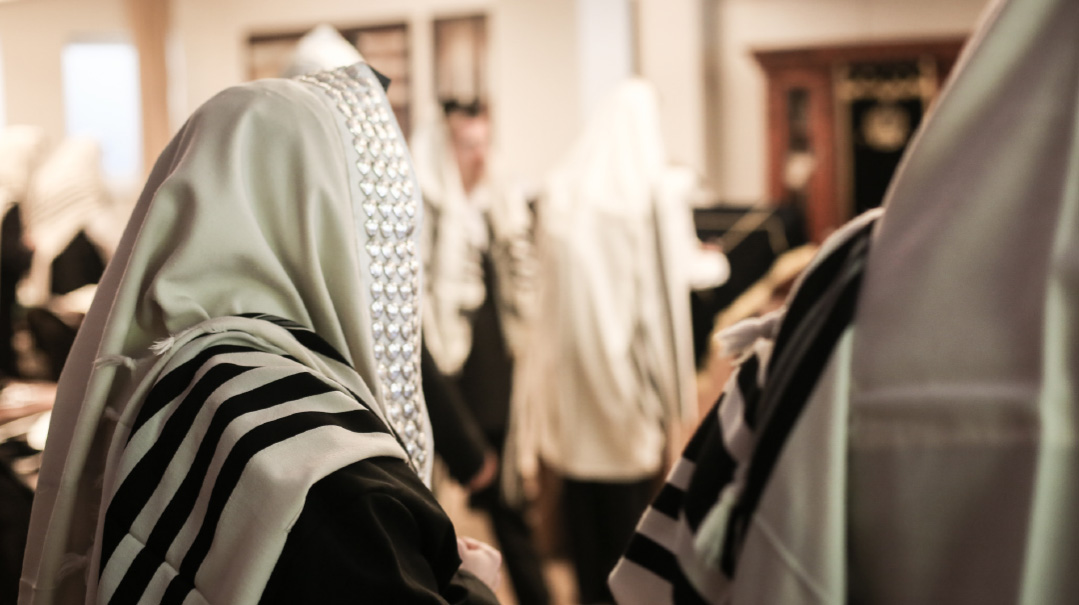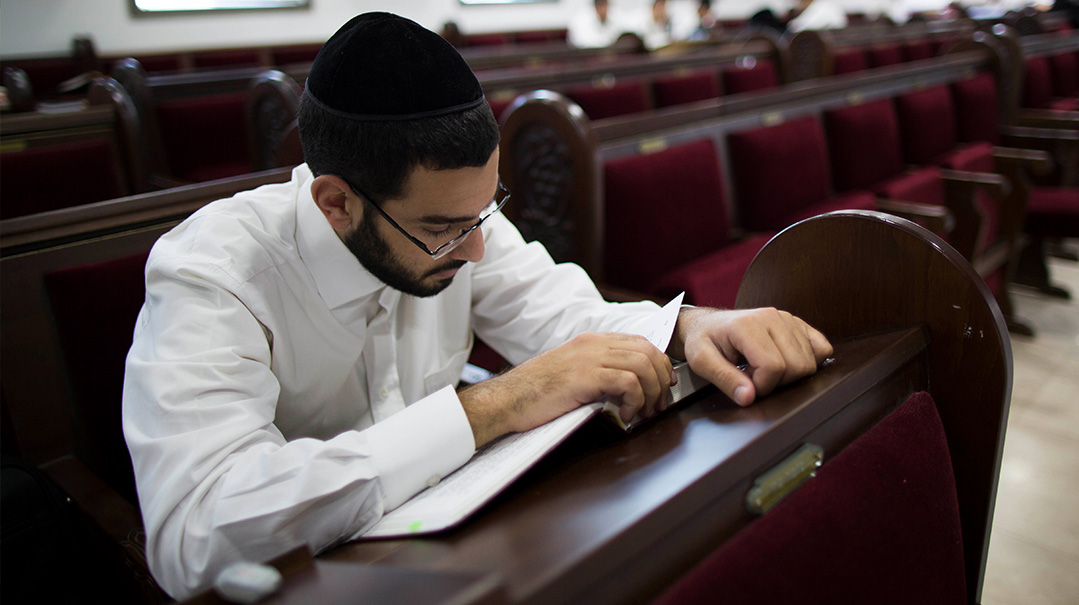All of Our Children
| August 3, 2021As Mashiach approaches, Hashem will rouse us through the most painful wake-up call of all: the scattering of our children
Having just read Rav Aaron Lopiansky’s excellent piece “Crumbling Foundations,” I find myself both sad and inspired. Sad, because his premise is so painfully accurate. Inspired, because that premise resonated deeply with me, and I feel compelled to put pen to paper in an attempt to urge us all to do something about it.
Are we brave enough to do a little research? Consider interviewing a random sample of all students graduating from our schools and yeshivos, including a representative sampling of students who dropped out (or were pushed out) before graduating. Let’s ask them the following multiple-choice question:
Which of the following answers most closely reflects how you feel about your experience in the system?
(a) I feel that I was seen as a success.
(b) I feel that I was tolerated at best and scraped through.
(c) I feel that I did not succeed on the level that was required and expected of me.
I believe that we will discover that a very significant number of children will respond with choices (b) and (c), and therein lies the root of the crumbling foundation and corrosion that Rav Lopiansky has so eloquently referenced.
The fact that so many of our 18-year-olds seem to feel they have fallen short or failed the system is a disaster of epic proportions. We as a community are failing these children, and thus, ourselves and our future. We must wake up and see this situation for what it is.
All our children are entitled to feel safe, loved, and successful. We must ensure that they all feel appreciated and valued. Indeed, they must feel this way if they are to build that future we envision for them, full of ahavas Hashem, yiras Shamayim, and Torah values. Rav Lopiansky related an episode in which Rav Shach expressed his foreboding about the future of the young generation’s Yiddishkeit. That concern is as relevant and urgent now as when Rav Shach first voiced it — perhaps more so.
How are we meant to handle such a serious situation? I would like to suggest three areas that we must urgently and collectively address.
The Parenting Piece
First, we as parents must look closely at our relationships with our children.
In order to thrive and be resilient to life’s challenges and difficulties, children must possess healthy attachment to their parents. That is, parents must provide an environment in which all of their children feel safe, secure, seen, and soothed. It is our responsibility as parents to provide these “4 S’s.” Without them, we deprive our children of the basic building blocks that connect them to their parents and to our mesorah. This issue is both simple and complex. Let me explain.
When I use the term safe, I mean that we do all we can to protect our children from any and all abuse — not just physical, but also emotional, psychological, and spiritual abuse. Secure means that we provide them with a secure environment, one in which they are confident of their parents’ love and respect for each other. One in which they feel secure that the Shabbos and Yom Tov table is an inviting place to be. It means giving them the confidence that they will be taken care of and not neglected.
Seen means that our children feel special and unique. To see them is to proudly reflect back to them what their special G-d-given qualities are, so they may know and value themselves.
Soothed means that when they get hurt, especially when they make mistakes and seem to have brought that hurt upon themselves, we first soothe their pain before giving them mussar and critique about the missteps that led to this pain.
During his childhood years, a child must experience his father and mother as merciful parents — “Av Harachaman.” That is, as kind, caring, loving parents, capable of laying down rules, structure, and discipline in a way that draws their child to them, and doesn’t push them in the opposite direction. This dynamic will prime the child to eventually transfer that experience from his relationship with his biological parents to a relationship with his Father in Heaven, the true Av Harachaman.
We take great pride in our large families. Let us ensure that all of our children feel deeply attached to us by giving focused attention to the 4 S’s of attachment. Raising our children with the 4 S’s will help our children develop resilience for dealing with and recovering quickly from life’s challenges and hurts. Furthermore, this and only this will reliably communicate to our children that they are truly loved by us.
A Positive School Experience
While parents must strive to do their part, schools and yeshivos play an outsized role as well. We can no longer allow a situation where only the academically inclined children feel successful in our school system. Our schools and yeshivos must serve as a safe environment for all students.
We must ensure that our academic programs allow the vast majority of children to feel truly capable of getting good grades and being considered successful. This feeling of success cannot be the private domain of the book-smart. If a child feels like a failure in math or English, history or geography, then we can probably find another area for her to excel in. But when we make her feel like a failure in Yahadus — in Torah subjects — then we destroy her relationship to our mesorah. That’s not an inconvenience. That’s a crime.
Additionally, when delivering discipline and consequences to children for misbehavior in school, we must once and for all find a way to deliver them with love and kindness, and the clear message that we are here to help you, not hurt you. Children must believe that they are valued by their school if they are to succeed.
A principal, rebbi, or teacher dare not give the impression to any child — even the most difficult child — that the teacher would be happier if the child just stayed home. Telling a child, “Be careful, we’re watching you,” or “You are on probation” will never motivate a child to do better. It instead will simply erode the last remaining drops of self-esteem the child may have and turns him against himself, his school, and our mesorah.
Addressing the Issues
Finally, we have to be brave enough — both at home and in school — to address contemporary and developmental issues to our children in an age-appropriate and sensitive fashion. Given their inevitable exposure to the world around us, we must be proactive and find culturally sensitive ways to talk to our children about these challenges. We must be more attuned to what their real-time experience is, and not to what we wish it was.
We must prepare our children for the challenges they will face as they mature, and teach them the responsibility that comes with this maturity. We must show them that they can feel safe to talk to us, that we understand their struggles and are here to help them. We must make sure they are not ashamed to seek counsel and help to control and to channel their personal challenges.
We must also talk to them about the challenges and potential dangers of the Internet and social media. We cannot just rely on outright forbidding these media and trying to intimidate and scare them away. Children are naturally curious. More so if they are feeling unsuccessful at school. Technology calls to them.
An effective antidote to their interest and curiosity is to talk with them more openly about why we are so concerned and scared for them to have access to these channels. Being more open and honest with them and helping them understand our concerns will make them feel more respected and ultimately have a stronger impact on them than threats.
While in the past, keeping certain topics taboo may have been an effective way to shelter children, today that is no longer the case. Trust me, it does not work. At far younger ages than in the past, today’s children know much more, far more, than we could ever have imagined. They need us.
Being more honest with them will give them the go-ahead to seek our guidance, input, and help. Scaring and shaming them leaves them to their own resources.
On Tishah B’Av we read in the first pasuk of the fourth perek of Eichah: “Tishtapeichnah avnei kodesh, b’rosh kol hachutzos — Sacred stones are strewn out on all the street corners.” Clearly the Navi is referring to the stones of the destroyed Beis Hamikdash. Rashi, however, tells us that the “holy stones” refer to our children. What is he telling us?
I once heard my rebbi, Rav Mattisyahu Salomon shlita, offer the following explanation. All the great historical tragedies brought upon our nation were meant to arouse and inspire us to do teshuvah and return to Hashem. From the churban Bayis, to the churban Europa, and all the tragedies that occurred between — all serve the same single purpose. Rav Salomon suggested that Rashi is telling us what will happen, G-d forbid, if we fail to pay attention to this heavenly message. As the time of Mashiach approaches, Hashem will rouse us through the most painful and sensitive wake-up call of all: the scattering of our children.
We hope and pray to finally witness the widespread teshuvah toward which Hashem, in His infinite wisdom, has been guiding us. Until that moment, let us do everything in our power to strengthen the foundation, shore up and repair the cracks — and help all of our children feel loved, valued, and confident in their role as the future of Klal Yisrael.
Rabbi Shimon Russell is a psychotherapist in private practice in Jerusalem, a popular author and speaker, and an authority on the challenges of struggling adolescents and "at risk" children and teens.
(Originally featured in Mishpacha, Issue 872)
Oops! We could not locate your form.












